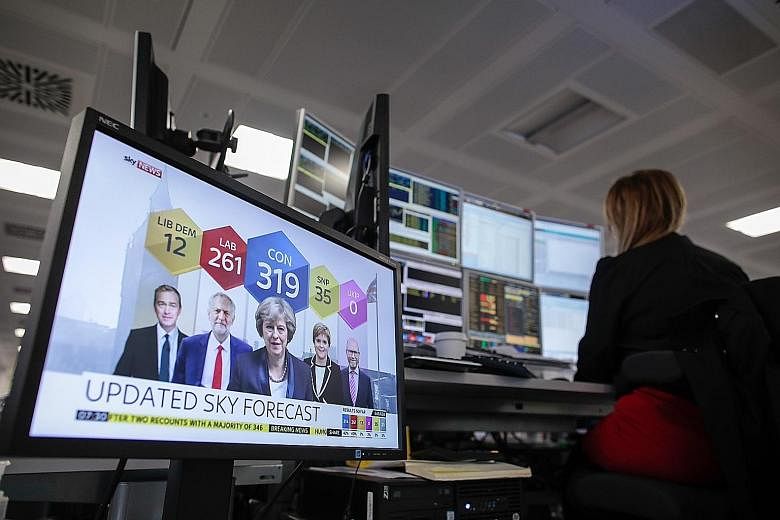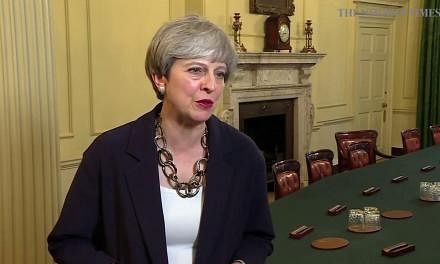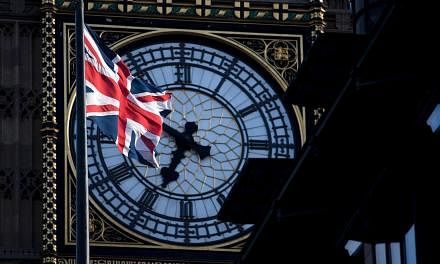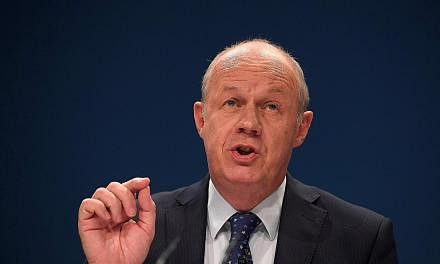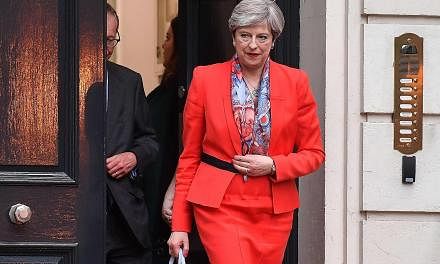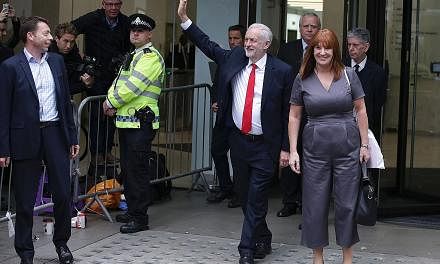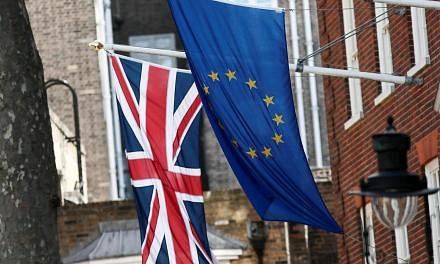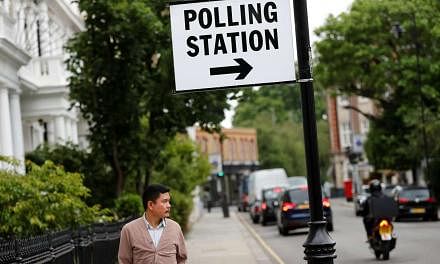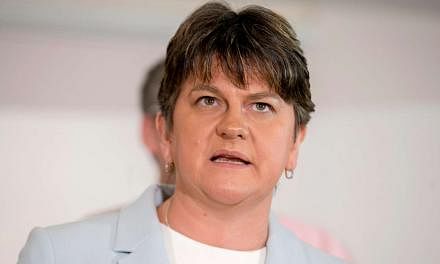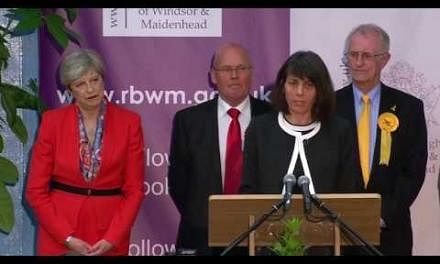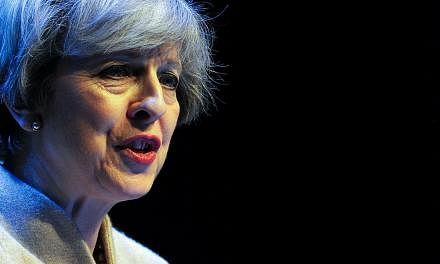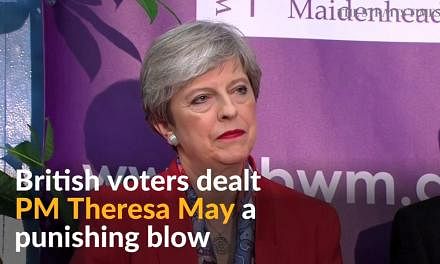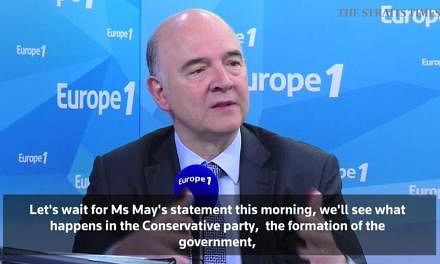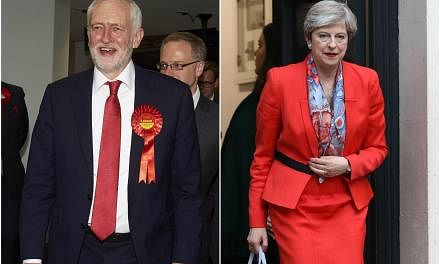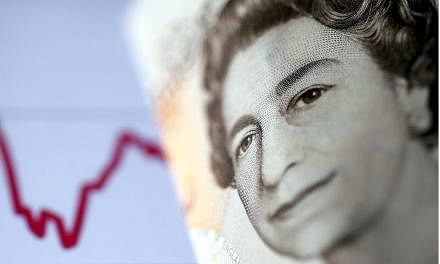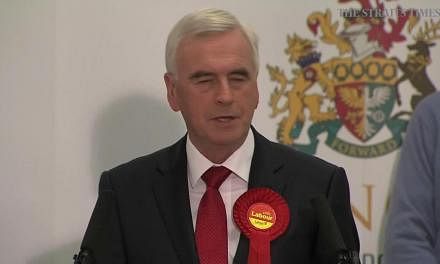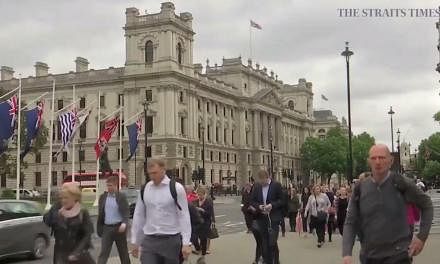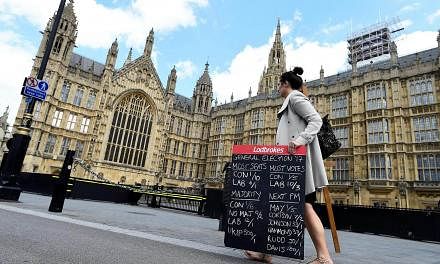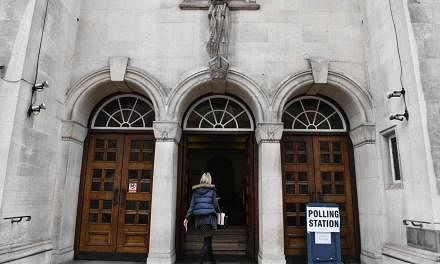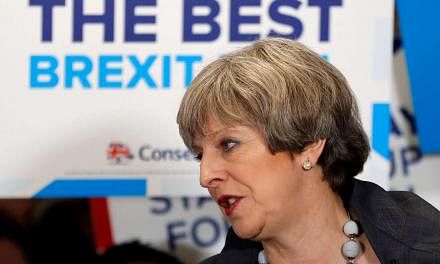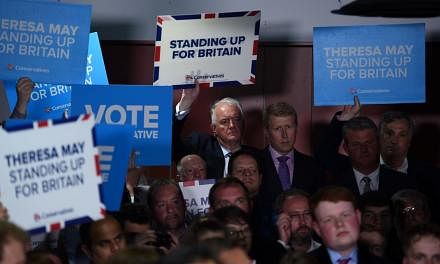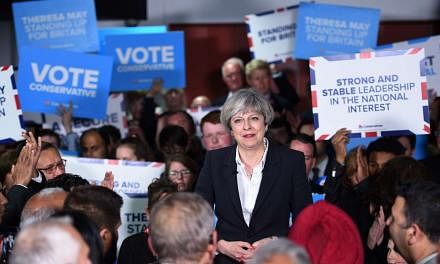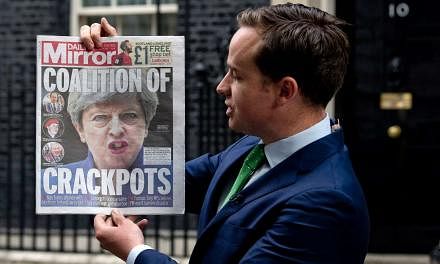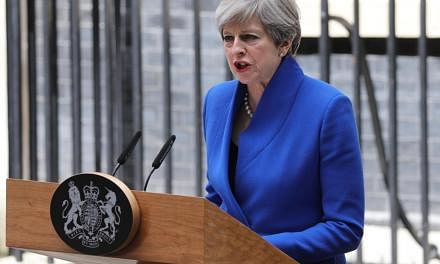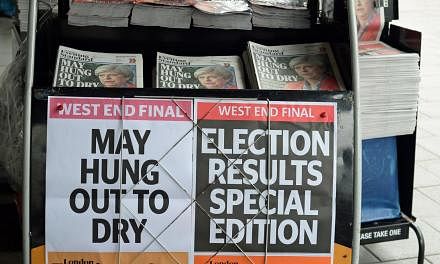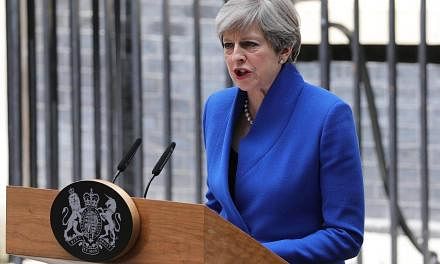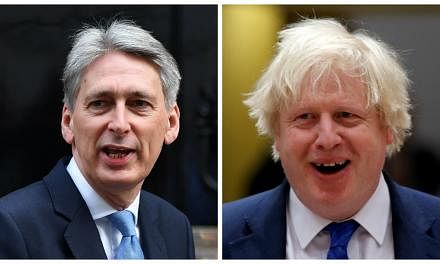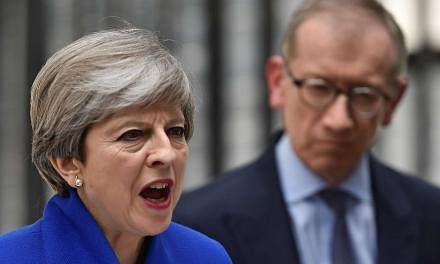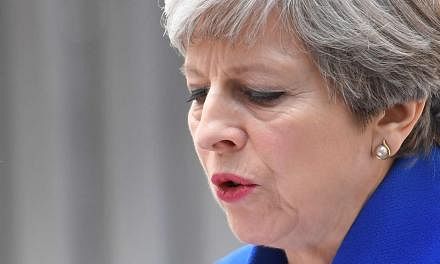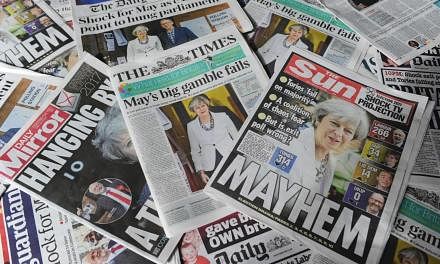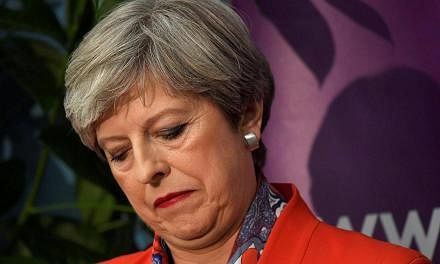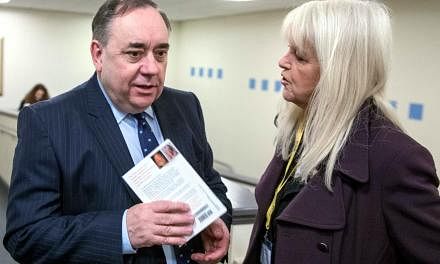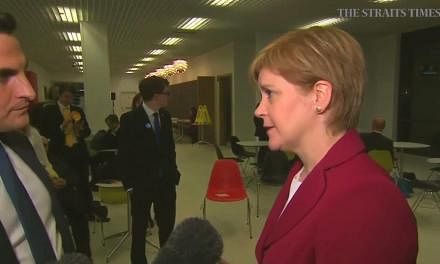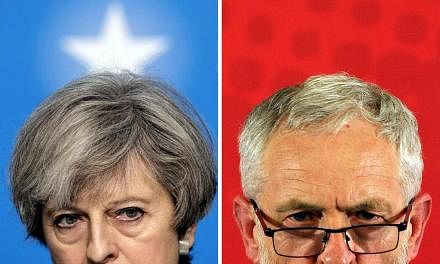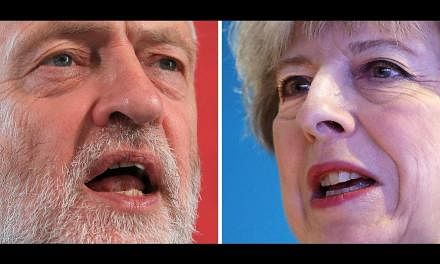While sterling and gold took a hit yesterday, many Asian markets, including Singapore, shrugged off the shock result of the British snap election.
Investors and analysts seemed to be in agreement that the fallout from the upset would be largely contained in Britain, with little impact elsewhere.
"The election results will not have a big impact on global financial markets," said Mr James Cheo, Bank of Singapore investment strategist. "While UK growth might be negatively impacted, European growth remains strong and its recovery would be unaffected."
The Straits Times Index even enjoyed a relief rebound to close 0.53 per cent higher. Japan, Shanghai, South Korea and Australia also enjoyed modest rises, but Hong Kong dipped. Most market action centred on the pound, which started falling early yesterday after an exit poll pointed to a hung Parliament - and possible problems ahead for Brexit negotiations.
Sterling was down 2.2 per cent at 1.7497 against the Singapore dollar - a two-month low - and slumped 1.4 per cent against the United States dollar. But these paled in comparison with the pound's plunge after the Brexit vote last year, when it dived about 11 per cent against the US dollar - its biggest intra-day slide in history - and 9.2 per cent against the Singdollar. Gold price was down as well yesterday, falling 0.8 per cent to US$1,274.81 an ounce.
Some economists downplayed the impact of the British vote.
Maybank Kim Eng economist Chua Hak Bin believes the vote outcome and Brexit uncertainty are "UK issues" that are unlikely to affect Singapore's economy.
"The rise in the Singapore stock market today, and over the last few months, indicates that economic recovery here has been broadening and looks to be sustained," he said.
With the threat of a "no-deal" Brexit receding, Mr Richard Buxton, CEO and head of UK equities at Old Mutual Global Investors, expects risk appetite to return.
Mrs May had earlier said that "no deal is better than a bad deal", arguing that the UK must be prepared to walk away from the Brexit talks - due to start on June 19 - if it feels it is not getting the kind of deal it wants.
"Although a period of uncertainty will not be welcomed, any further signs of a 'softer' Brexit, combined with still-improving global demand, could bode well for UK companies," Mr Buxton said.
